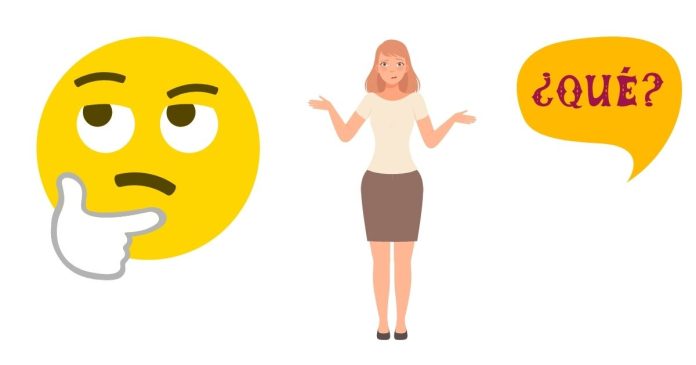Jaja que haces” is an informal Spanish expression that combines an interjection of laughter (“jaja”) with a question (“que haces”). To fully understand it, let’s break it down:
Jaja: This is a written representation of laughter, similar to “haha” in English. The number of repeated “ja”s (jaja, jajaja, jajajaja) often intensifies the expression of laughter, from a simple smile to a loud laugh. In some contexts, a single “ja” can even denote sarcasm or irony, but in “jaja que haces,” it generally indicates genuine laughter or at least a relaxed attitude.
Que haces: This is a direct question that means “what are you doing?” in Spanish. It’s used to ask someone what they are doing at that moment.
Therefore, “jaja que haces” literally translates to “haha what are you doing.” However, the real meaning is more nuanced. It’s generally used in informal contexts, such as between friends via text message, social media, or chats. It implies a friendly and playful attitude. It can be interpreted in several ways depending on the context and tone:
Laughter at something the other person is doing: It could mean that the other person’s action is funny or surprising, and the laughter expresses amusement. For example, if a friend sends you a picture of themselves making a funny face, you might reply with “jaja que haces.”
A casual way to greet or start a conversation: Sometimes, the “jaja” is simply used to lighten the mood and show a relaxed attitude when starting a conversation. In this case, there isn’t necessarily anything specific causing the laughter.
Expressing disbelief or surprise with humor: If someone tells you something unexpected or a bit far-fetched, you might reply with “jaja que haces” to express surprise with a light and humorous tone.
In summary: “jaja que haces” is a colloquial expression used to express laughter or a relaxed attitude while asking someone what they are doing. Its exact meaning depends on the context, but it always implies an informal and friendly interaction.
It’s important to note that excessive use of “jaja” in written communication can sometimes be considered immature or unprofessional in formal contexts.


